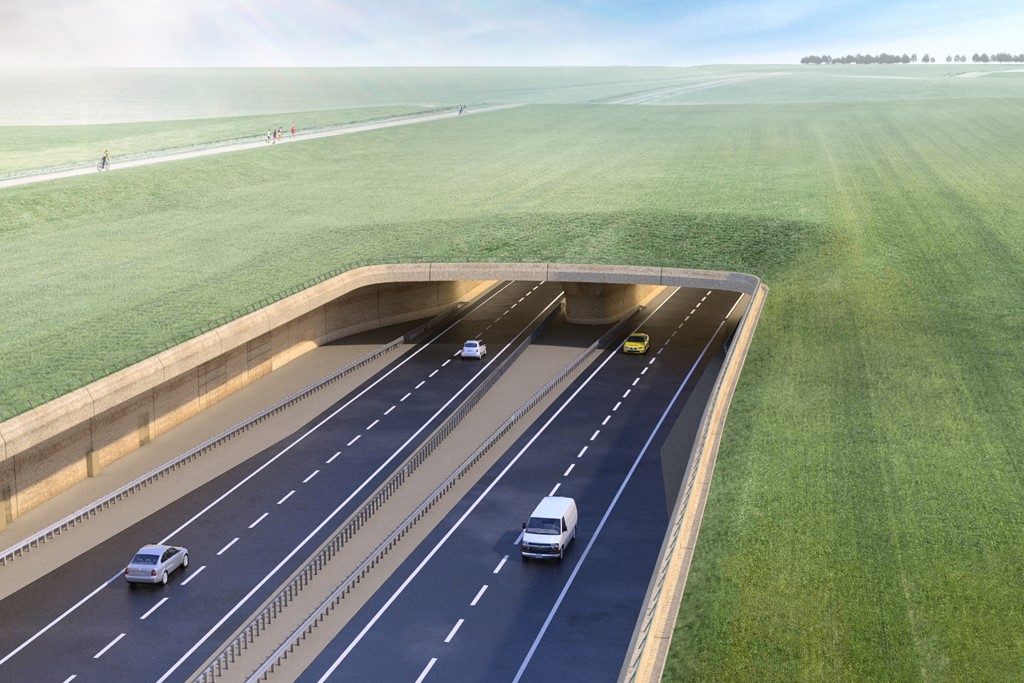More than £260m was spent on two major road schemes that have now been put on ice, Construction News can reveal.
In July this year, chancellor Rachel Reeves shelved both the £1.7bn project to build the A303 Stonehenge tunnel scheme (pictured) and the £320m A27 Arundel bypass, arguing that there was no money to move forward with them.
Now, following a Freedom of Information Request, CN can reveal that the Department for Transport (DfT) spent £179.2m on the A303 project and £86.9m on the Arundel bypass before they were both canned.
Steve Gooding, a former senior DfT official, now director of the RAC Foundation, told CN that cancelling projects at such a late stage “raises questions in taxpayers’ minds as to whether their hard-earned contributions to the exchequer are being spent wisely”.
Much of the upfront cost – £38.4m on the A303 project, and £42.2m on the A27 project – was for preliminary design work. On the A303, the DfT also spent £41.9m on construction preparation, £25.5m on construction advance works and £35.9m on other, undefined construction works, among other things.
On Arundel, the DfT spent £33.9m on blight and discretionary purchases, and £8.1m selecting which design option to move forward with.
The Stonehenge tunnel scheme got government approval in November 2020, but was subject to legal wranglings.
Former transport secretary Mark Harper delayed the Arundel bypass job – previously awarded to a joint venture of Bam Nuttall, Mace and Aecom – in March 2023, until 2025-2030.
Cancelling the schemes in July, Reeves said that the former Conservative government had pushed ahead with £1bn worth of unfunded transport projects.
She also announced reviews into government transport and healthcare building projects, saying that the previous government “refused to publicly cancel [projects] despite knowing full well that they were unaffordable”.
Gooding acknowledged that there are already several safeguards built into the process for deciding on major projects, including some that “test both the practicality and affordability of proceeding [with them]”.
But he has called for one of the Labour government’s new organisastions, the National Infrastructure and Service Transformation Authority (NISTA), to review “whether that system needs attention”.
A spokesman for the Conservative Party said: “It is time for this Labour government to take accountability for the choice it has made to prioritise inflation-busting public sector pay rises paired with no working practice reform over vital transport infrastructure projects – leaving the public worse off.”

